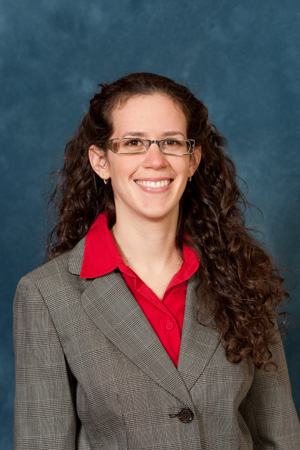Mariel Lavieri joined the faculty of the Department of Industrial and Operations Engineering at the University of Michigan in 2009. In her work, she applies operations research to healthcare topics. Her most recent research focuses on medical decision making, in particular on determining optimal treatment protocols by explicitly modeling stochastic disease progression. She has also developed models for health workforce planning, which take into account training requirements, workforce attrition, capacity planning, promotion rules, and learning. Mariel is the recipient of both the Bonder Scholarship (for her potential in making a significant contribution to the field of applied operations research in health care services) as well as the Pierskalla Award (awarded for the best paper presented in a Health Applications Section sponsored session at INFORMS).
Disclaimer: This is a transcript from a verbal interview
What kind of research are you excited about?
My ongoing work applies operations research and industrial engineering to healthcare. From the applications perspective I am currently working on both medical decision making and in ensuring that sufficient resources are available (and resources are efficiently and effectively utilized across patients) to meet the needs of the population. From a technical perspective, I am interested in sequential decision making that incorporates a learning component as outcomes are observed. This encompasses methodology such as dynamic programming, stochastic control, optimization, partially observable state space models, and applied statistics.
What problems are keeping you up at night?
I guess one big thing is making models as realistic as possible while gaining structural insights of the models developed. Modeling a problem that closely resembles reality while at the same time making it feasible for it to be solved (or for a good solution to be obtained) in the amount of time that the decision maker has available can be challenging.
How do you think engineers and healthcare professionals can work together to improve patient care?
As engineers, we have a very structured way of looking at the world and a different way of looking at problems. On the other hand, decision makers and healthcare providers really understand the problems at hand. The healthcare providers are the ones who know what types of problems are important and whether a solution can truly be of help.
What surprised you most about working with healthcare professionals?
What surprised me most about working with healthcare professionals is how interesting their problems are! I also quickly learned that it is not possible to take a problem, go to your office, solve it, and be done with it. To be successful, it is very important to work hand in hand with healthcare professionals in solving the problems at hand.
How has working with healthcare professionals changed or altered your way of thinking about healthcare problems?
As an engineer, I pay a lot of attention to the methods. Working with healthcare professionals has taught me that the introduction and discussion of implications tends to be extremely important to them. That has kept me grounded in that the methods must always keep the implications in mind.
How has working with healthcare professionals changed or altered your way or approach to tackling healthcare problems?
I think the main thing is that the problem is not solved when the methods are done. The validation of the work tends to also be a key part of any healthcare application, and sufficient time must be allocated to do it well. As engineers, we are used to small case studies to demonstrate applicability of our methodology. However, by working with healthcare professionals, I have realized that the model inputs and validation make a big difference to them, and sufficient calibration and validation has to happen if methods are to be shared and used by that community.
Originally published on 1/29/15.

